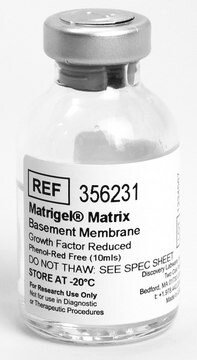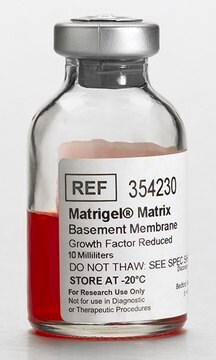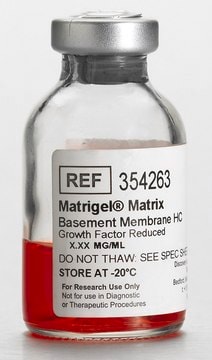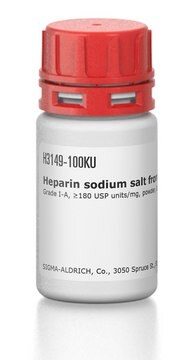SRP8012
Jagged-1 (human): FC (human)
recombinant, expressed in HEK 293 cells, >90% (SDS-PAGE)
Sinónimos:
JAG1, Protein jagged-1, Tweak-receptor, hJ1
About This Item
Productos recomendados
biological source
human
recombinant
expressed in HEK 293 cells
assay
>90% (SDS-PAGE)
form
liquid
mol wt
~150 kDa by SDS-PAGE
packaging
pkg of 10 μg
storage condition
avoid repeated freeze/thaw cycles
concentration
≥0.2 mg/mL
technique(s)
ligand binding assay: suitable
impurities
<0.1 EU/μg endotoxin, tested
suitability
suitable for molecular biology
UniProt accession no.
shipped in
wet ice
storage temp.
−20°C
Gene Information
human ... JAG1(182)
General description
Application
Biochem/physiol Actions
Physical form
Other Notes
Storage Class
10 - Combustible liquids
flash_point_f
Not applicable
flash_point_c
Not applicable
Elija entre una de las versiones más recientes:
Certificados de análisis (COA)
¿No ve la versión correcta?
Si necesita una versión concreta, puede buscar un certificado específico por el número de lote.
¿Ya tiene este producto?
Encuentre la documentación para los productos que ha comprado recientemente en la Biblioteca de documentos.
Nuestro equipo de científicos tiene experiencia en todas las áreas de investigación: Ciencias de la vida, Ciencia de los materiales, Síntesis química, Cromatografía, Analítica y muchas otras.
Póngase en contacto con el Servicio técnico








